* * * *

You don’t have to become a monk to do the Daily Office…
* * * *
The acronym “DOR” stands for Daily Office Reading. That’s where the “DOR” in “Dorscribe” comes from. In turn, the Daily Office is a two-year cycle of Bible readings. Which means that if you follow the full set of readings, you’ll get through virtually the entire Bible one time in two years. (And the psalms and Gospels three to four times.) See also Canonical hours – Wikipedia:
The canonical hours mark the divisions of the day in terms of periods of fixed prayer at regular intervals… In western Catholicism, canonical hours may also be called offices, since they refer to the official set of prayer of the Roman Catholic Church… In the Anglican tradition, they are often known as the daily office (or divine office), to distinguish them from the other ‘offices’ of the Church, i.e. holy communion, baptism, etc.
Wikipedia added that the practice of making such daily prayers “grew from the Jewish practice of reciting prayers at set times of the day,” as for example in the Book of Acts, where “Peter and John visit the temple for the afternoon prayers (Acts 3:1).” (E.A.)
See also Psalm 119:164, “Seven times a day I praise you for your righteous laws.”
This practice started with the Apostles, then – later – as monasticism spread, monks developed standardized hours and liturgical formats for daily prayer. (And daily Bible study.) “Already well-established by the ninth century in the West, these canonical offices consisted of eight daily prayer events: lauds, prime, terce, sext, none, vespers and compline, and the night office, sometimes referred to as vigils.” The canonical hours article added:
By the time of the Roman Empire, the Jews (and eventually early Christians) began to follow the Roman system of conducting the business day in scheduling their times for prayer. In Roman cities, the bell in the forum rang the beginning of the business day at about six o’clock in the morning (Prime, the “first hour”), noted the day’s progress by striking again at about nine o’clock in the morning (Terce, the “third hour”), tolled for the lunch break at noon (Sext, the “sixth hour”), called the people back to work again at about three o’clock in the afternoon (None, the “ninth hour”), and rang the close of the business day at about six o’clock in the evening (the time for evening prayer).
A side note, that way of telling time is shown in Mark 15:33 and Matthew 27:45, of Jesus’ crucifixion and death. Those passages refer to the sixth and ninth hours of the day: “Now when the sixth hour had come, there was darkness over the whole land until the ninth hour. And at the ninth hour Jesus cried out with a loud voice … and breathed His last.” Thus the “darkness” that day started at noon and lasted until 3:00 in the afternoon. “Canonical hours” concluded:
The traditional structure [of the Daily Office today] reflects the intention by the reforming Archbishop of Canterbury, Thomas Cranmer, to return to the office’s older… Like many other Reformers, Cranmer sought to restore the daily reading or singing of psalms as the heart of Christian daily prayer. Since his time, every edition of the Book of Common Prayer has included the complete psalter, usually arranged to be read over the course of a month…
On the other hand, over the centuries the practice of daily Bible reading seven times a day became too onerous for working-class folk. So Cranmer started the present system of studying the Bible at most twice a day. Each day’s readings include two sets of psalms, “AM” and “PM.” (One set for morning prayer and one for evening prayer.) But with the difficulty of setting aside even two times a day for Bible reading, you could read both sets of psalms at once, for me usually first thing in the morning.
See also Daily Office | From the Diocese of Indianapolis, also known as “dailyoffice.org.”
The Daily Office is an ancient way to pray. There are many ways to pray, including your own cries to God of joy and sorrow and need. Such prayers are intensely personal, while the Office gathers up all our prayers so that we can pray together. From monasteries to churches to private homes, people have been praying the Daily Office for thousands of years. Why? Because it brings us closer to God.
So there you have it. The Daily Office provides a way for ordinary people to read and get through the Bible in as little as two years. (And not get bogged down somewhere in Leviticus, what usually happens when you try to read the Bible like a novel.) And who knows? By consulting this blog “for clues” – and maybe reading the Bible yourself – you might end up solving your own life’s fascinating detective story, like Sean Connery.
* * * *

* * * *
The upper image is courtesy of New Parson’s Handbook: Two Ways of Praying: Psalms and Daily Prayer, which added, “the Daily Office or Liturgy of the Hours (Morning and Evening Prayer, for most Anglicans) has itself a rich and varied tradition, and its celebration can take varied forms.” The article gave even more reasons why Psalms are essential to daily prayer, and spiritual growth.
Aside from the Daily Office there’s the Revised Common Lectionary. It sets out the Bible readings for Sundays, and follows a three-year cycle. That in turn means if you attend an Episcopal church each Sunday for three years, you’ll hear virtually the whole Bible read to you, “once in three years, and the psalms and Gospels three to four times.”
The lower image is courtesy of The Name of the Rose (film) – Wikipedia. See also The Name of the Rose – Wikipedia, which referred to “the first novel by Italian author Umberto Eco. It is a historical murder mystery set in an Italian monastery in the year 1327.” The book revolves around the canonical hours during the visit by “Franciscan friar William of Baskerville and his novice Adso of Melk,” to a “Benedictine monastery in Northern Italy to attend a theological disputation.”
Those canonical hours were: 1. Matins (at sunrise); 2. Prime (first hour of the day); 3. Terce (third hour of the day); 4. Sext (sixth hour of the day or noon); 5. None (ninth hour of day); 6. Vespers (end of day, sunset); and 7. Compline (before retiring); 8. Vigils (during the night). As the book also indicated, the monks in a monastery normally went to bed around 6:00 p.m. and got up at 3:00 a.m. See also Vigiles – Wikipedia, the free encyclopedia, about the Vigiles Urbani (“watchmen of the City“) or Cohortes Vigilum (“cohorts of the watchmen”), the “firefighters and police of Ancient Rome.”
As to the simplification of the Daily Office, see Intro to Prayer Book | The Daily Office:
Cranmer and the English Reformers were committed to: 1. Bringing the complicated and extensive prayer system out of the monasteries and convents to the common people, and 2. Necessarily, simplifying it all and putting it in their common language. This meant Morning and Evening Prayer and the Eucharist would accessible to all who could read.
(Emphasis added.) Meaning from 1549 on, reading and interpreting the Bible was no longer the exclusive province of the clergy.
* * * *
One final note: To increase your ease in “reading” the Daily Office, Church Publishing Incorporated (formerly known as Church Hymnal Corporation) offers a four-volume set, Daily Office Readings, as shown below. Each volume includes “Lectionary texts for reading the daily office using the Revised Standard Version translation of the Bible.” See Welcome to Church Publishing (E.A.).
As noted in the Introductions to each volume, there are two volumes for each year of the Daily Office, “in strict accordance” with the Lectionary set out in the Book of Common Prayer, at pages 936-1000. (See also Daily Office Lectionary.) The Introductions add:
Because of the importance of the Daily Office in the Anglican tradition … these volumes will make the Offices easier to recite [sic], aiding the use of the Office for private or public prayers. [They] eliminate the need to find three readings for each day in the Bible and to track down those readings which skip around within a given passage. DOR should make it more possible for the laity and clergy alike to develop the habit of reciting [sic] the Offices by eliminating much of the work involved. They are also invaluable for those who are traveling.
See also More on the Divine Office: Private Recitation, and How to Pray the Office:
[T]he canonical hours stemmed from Jewish prayer. During the Babylonian Exile, when the Temple was no longer in use, the first synagogues were established, and the services (at fixed hours of the day) of Torah readings, psalms, and hymns began to evolve. This “sacrifice of praise” began to be substituted for the sacrifices of animals… When praying the Hours privately it is not a requirement to ‘sing’ a hymn. You may simply pray
the verses provided.
For yet another take see How to Pray the Daily Office from the Book of Common Prayer, and also note The Daily Office – Mars Hill Bible Church: “The Daily Office is a set rhythm of reading the Scriptures, singing, and prayer. Sometimes called the Liturgy of the Hours, it originally developed when early Christians continued the Jewish practice of reciting prayers and songs at certain hours. Priests, monks, and followers of Jesus the world over observe the Daily Office, even today.”


 “
“ Also, these two sisters had a brother,
Also, these two sisters had a brother,  See also
See also 
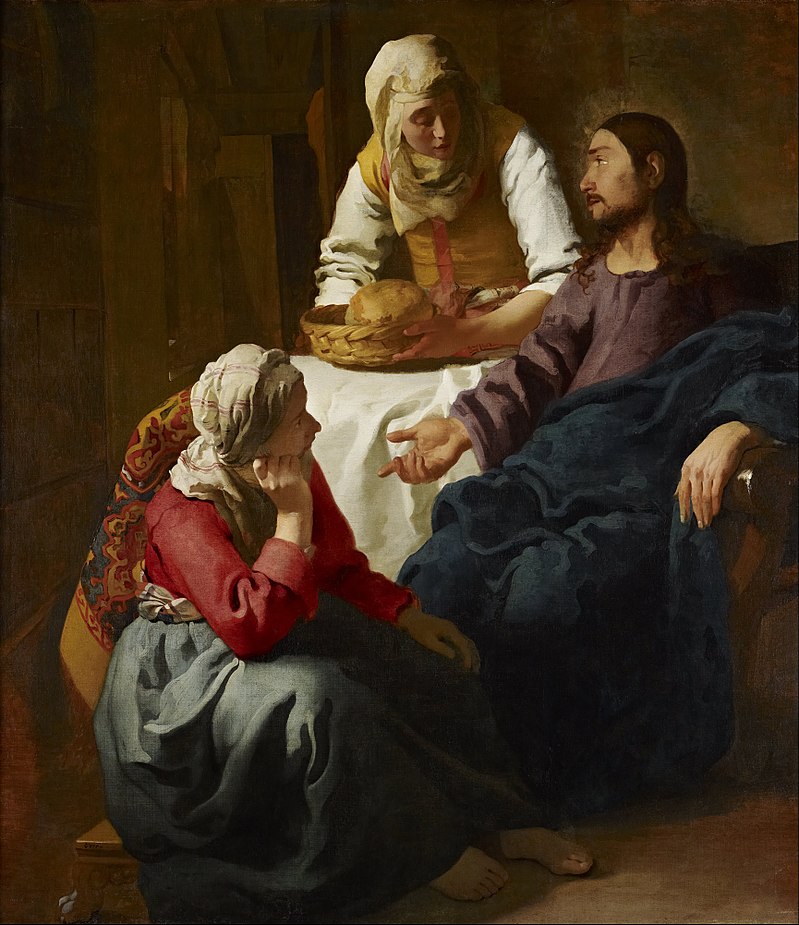
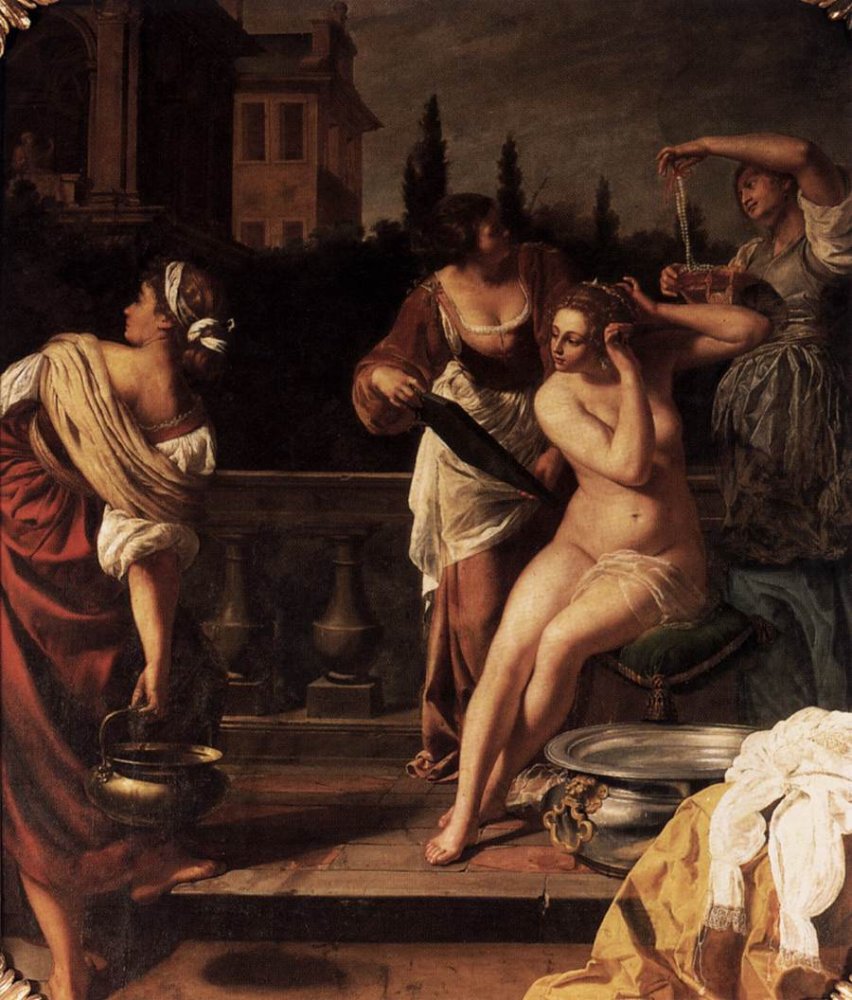
 But first, a telling detail in
But first, a telling detail in  The New Testament lesson is
The New Testament lesson is 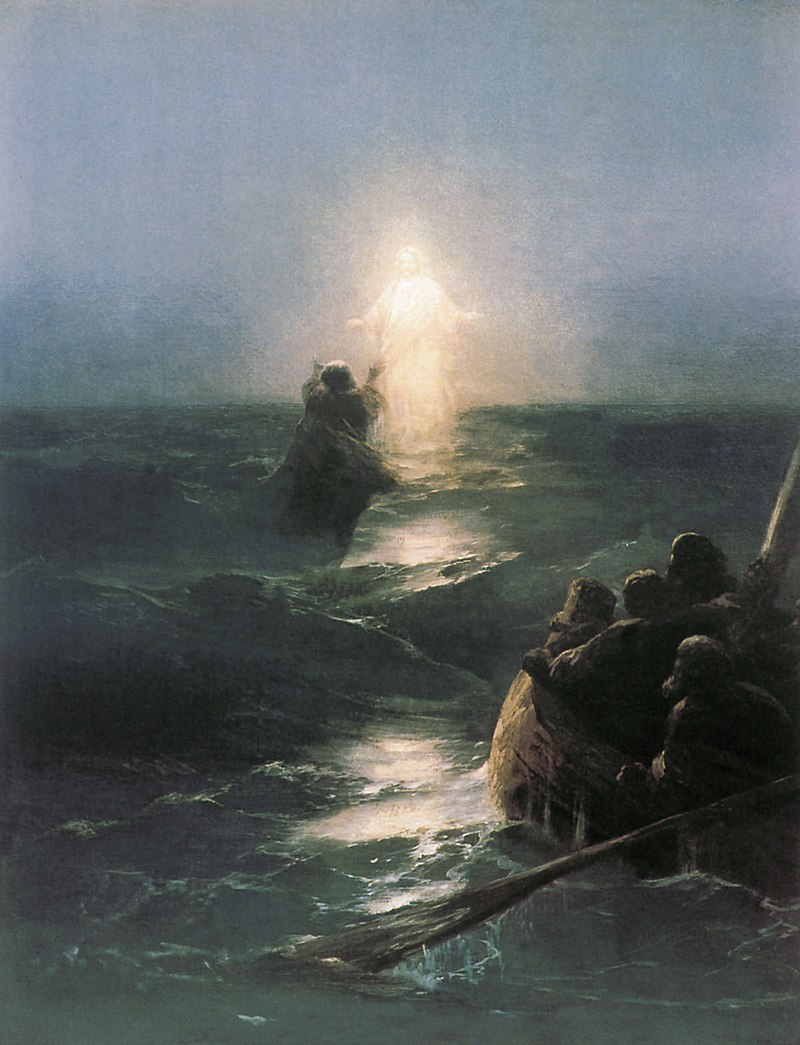

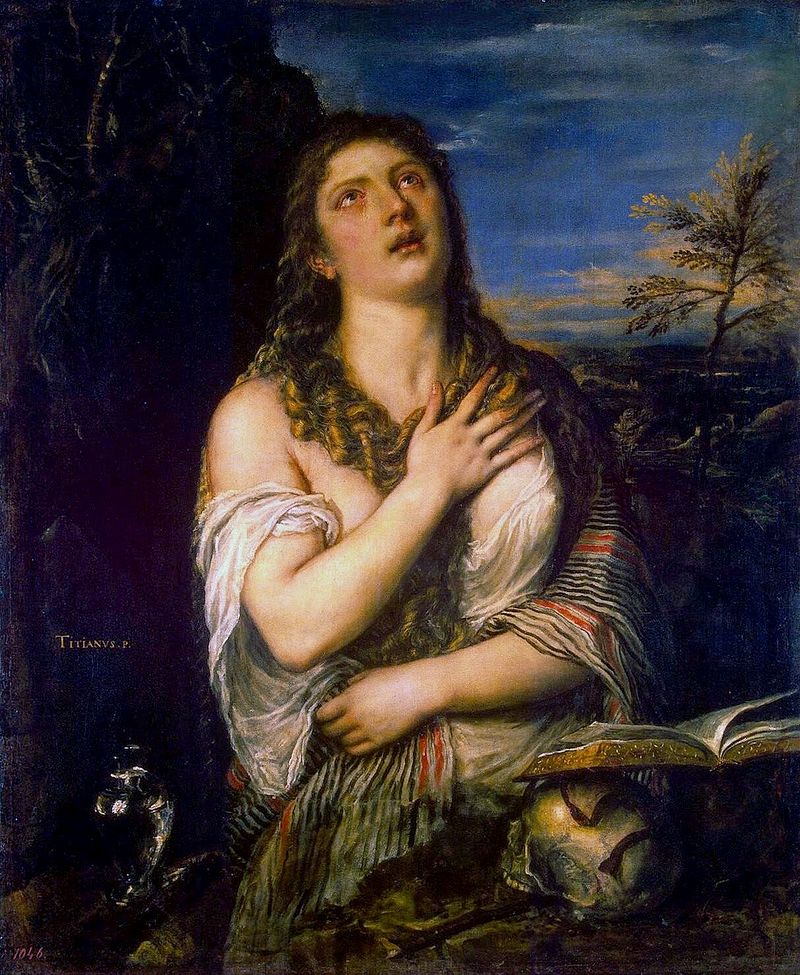
 As
As 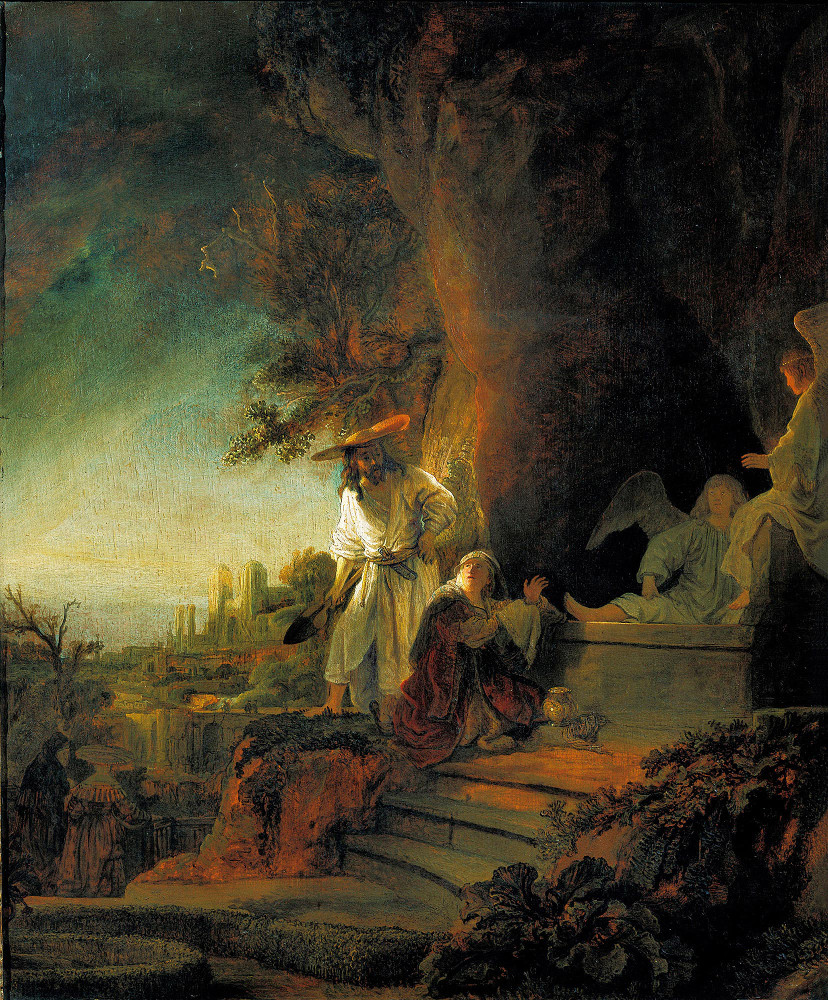

 I did pack – in my spandy-new 2015 Ford Escape – an 8-foot kayak, along with a stair-stepping stand and a 22-pound weight vest. (To earn my
I did pack – in my spandy-new 2015 Ford Escape – an 8-foot kayak, along with a stair-stepping stand and a 22-pound weight vest. (To earn my  I did need to stop from time to time at local libraries, to use their computers. But that was only if I needed a secure connection, like to check my bank accounts or – with the Ford being so new – to make the first payment, a few days into the trip. (At the
I did need to stop from time to time at local libraries, to use their computers. But that was only if I needed a secure connection, like to check my bank accounts or – with the Ford being so new – to make the first payment, a few days into the trip. (At the  In this way my trip emulated Steinbeck’s visit to
In this way my trip emulated Steinbeck’s visit to  David and his
David and his 
 Which brings us back to the “
Which brings us back to the “ But it wasn’t until the 8th century – the 700s – that such relics really began to be spread “all over Europe.” (The image at right shows “
But it wasn’t until the 8th century – the 700s – that such relics really began to be spread “all over Europe.” (The image at right shows “
 But getting back to
But getting back to 

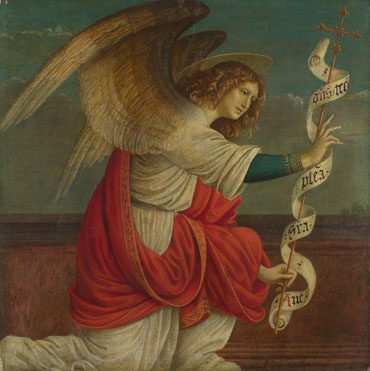 That is, nine months earlier – as Zechariah was doing his priestly duties in the
That is, nine months earlier – as Zechariah was doing his priestly duties in the 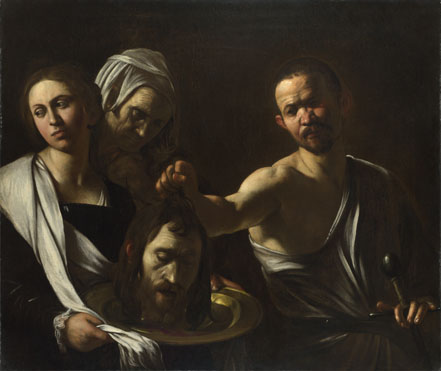
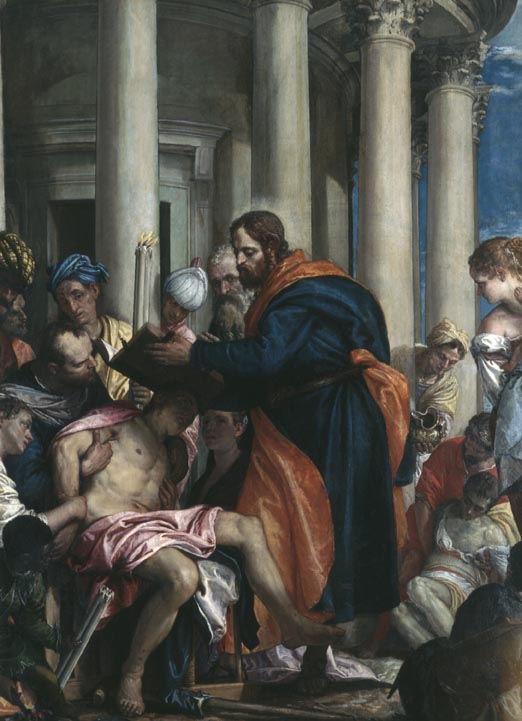


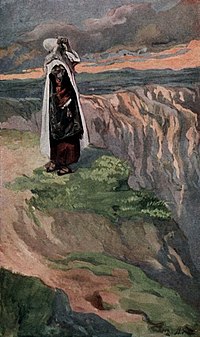 Deuteronomy 29:2-15 is part of “concluding discourse” of Moses, on renewing the covenant between God and the Hebrews. See
Deuteronomy 29:2-15 is part of “concluding discourse” of Moses, on renewing the covenant between God and the Hebrews. See  The Gospel – Luke 18:15-30 – began with people bringing children for Jesus to bless. The disciples tried to stop it, but:
The Gospel – Luke 18:15-30 – began with people bringing children for Jesus to bless. The disciples tried to stop it, but: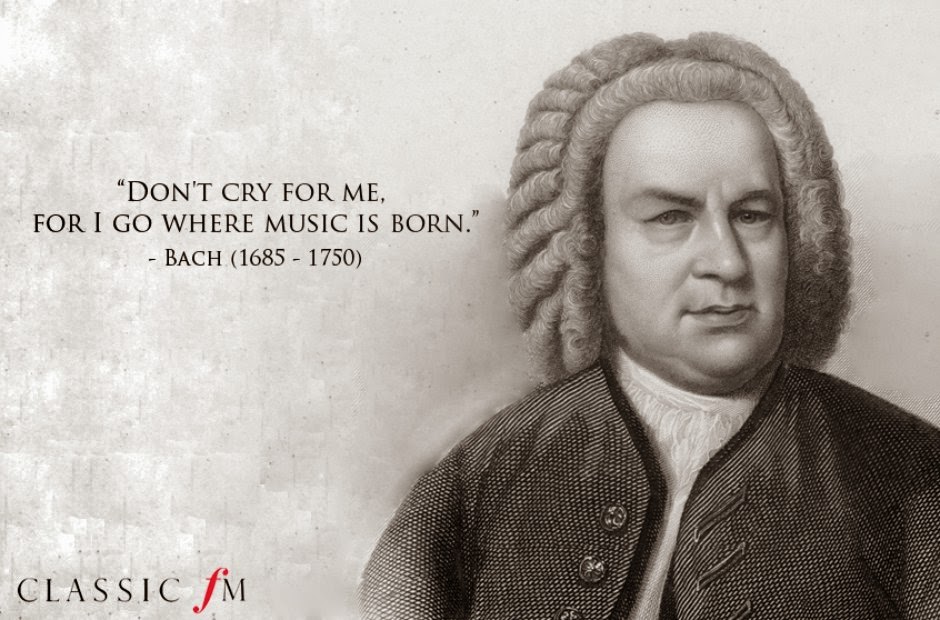 Personally I think it’s the “rote answer.”
Personally I think it’s the “rote answer.” In other words, this June 6th calls for us to remember the sacrifices of those brave members of the armed services 71 years ago, as part of the Allied invasion of Normandy.
In other words, this June 6th calls for us to remember the sacrifices of those brave members of the armed services 71 years ago, as part of the Allied invasion of Normandy.